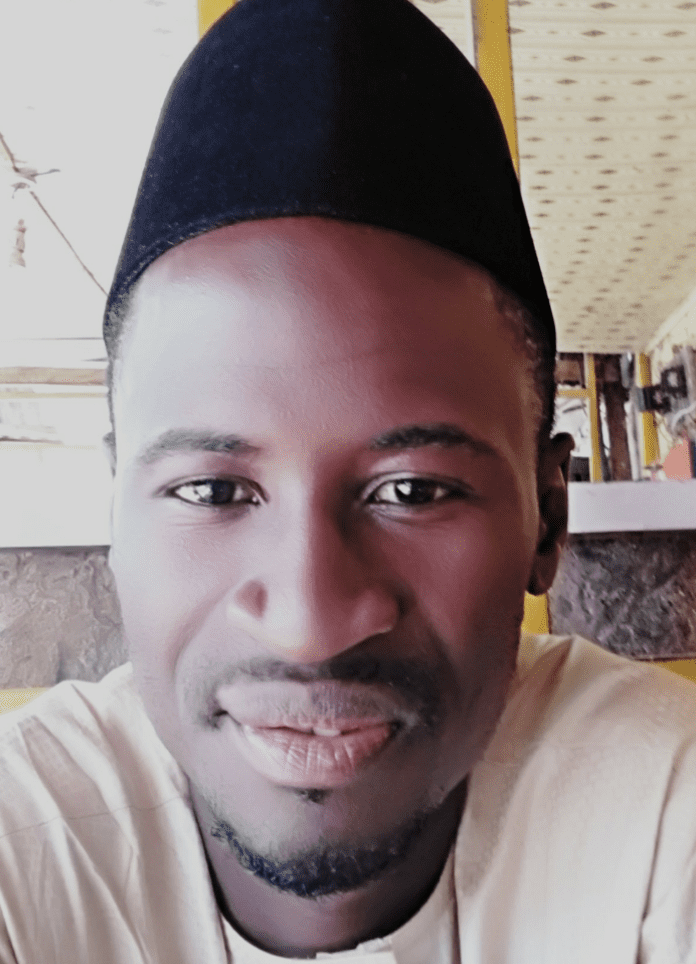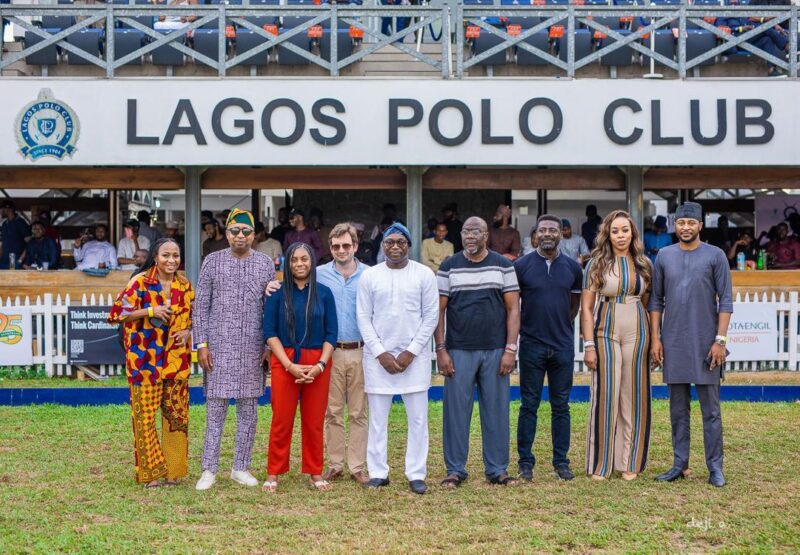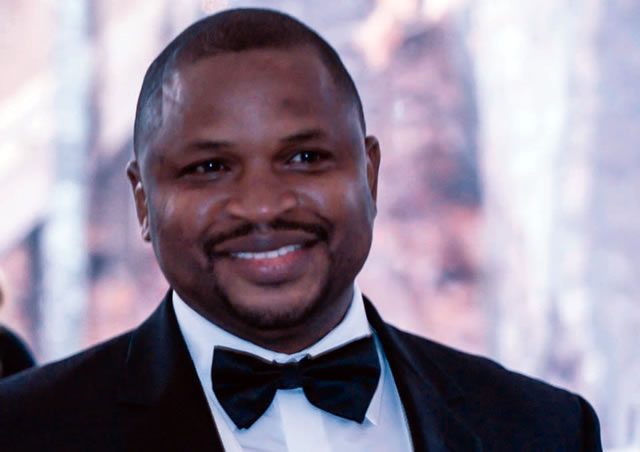National Issues
The Nigerian scholar in Philippines and the loss of ethical professionalism
Nwankwo could not understand the realities of territoriality—how it has been transformed and incorporated some of these clans or lineages; ethnic or linguistic groups into different polities in the Nigerian area—how this challenges his assumption that the wars, conflicts and jihad he cherry-picks to emphasise that the history of Nigeria and the rest of Africa was such of ‘tribes and ethnic groups’ was not necessarily the case, but of existing polities which incorporated all these ethnic groups.

If I were the proud Dr. Nwankwo Tony Nwaezeigwe, I’ll not have responded to Ismail Misbahu in the way he did in his rejoinder titled “The Kemi Badenoch nightmare, Kperogi’s obsolete balaism and Ismail Misbahu’s animated poverty of Fulani historicism.” It exposes his ethical weaknesses as a professional, his combative sycophancy as a comic griot and of course, the unbearable coronary artery disease of his heart.
Dr. Tony Nwankwo must have been lucky that the students he trained at the University of Nsukka have been saved and nurtured by others with proper moral training after he left. They would not choose to render the service of someone they, of course, recognised as an intellectual zombie ready to devour their courage of rebuilding their lost hope, pride and dignity. They could have become all zombies had he once ever flagged the stimulus of his kind on any of them. Unfortunately, he never cared. He forgot them while backstabbing the regrettable orientation he could not reclaim from any of them. Like him, Badenoch still cannot get any better professional historian to do her bidding.

One would not like to engage Nwankwo on his self-serving professional orientation. For doing so will risk Ismail into losing the moral training he gets, and continues to build upon, from the prestigious Ahmadu Bello University Zaria. I choose to respond by pointing out what ‘doctor of philosophy’ means to Nwankwo and how he exposes the shame of his Nigerian diasporaism, arrogance and professional misrepresentation of the nation and its citizens. It will be a great disservice to the nation to invite assumptions from reputable international organisations that a ‘character’ like Nwankwo is a representation of ‘Yoruba’ or ‘Christians’ or ‘southerners’—all he stands to represent under the misnamed “International Coalition Against Cristian Genocide in Nigeria.” Sadly, it will take a long while for Nwankwo to respond to mental editing—the impractical resonate in the Bahaushe saying “hali zanen dutse”—emphasising this impracticality. His exhibiting unprofessionalism equates the meaning in Psalm 92:7: “when the wicked spring as the grass, and when all the workers of iniquity do flourish; it is that they shall be destroyed for ever.” I will never want to be part of Nwankwo’s ‘workers of inequity’!
But for the sake of public respect, I should try making the reader notice how the impracticality of Nwankwo’s professional conduct clearly manifests itself in his wordings and choice of terms. One could dictate, based on the purpose he’s writing about—hostility, enmity and arrogance—how the choice of his words and terms like “surrogate defender”, “intoxicated infantile enthusiasm” to censoriously describe his ‘less average’ or even ‘failed’ student, clearly exposes his ethical void in historical professionalism. I thought he’d the emotional power to properly transform the failure of his student into an unforgettable life-living success. I thought he could have the ability to deploy his professional expertise and wisdom, device a new model of moral teachings and orientation, use it and transform this “little-brained historian-in-training” but also the Nwankwo’s “failed student” into a successful one, as well as instruct him to refrain from becoming a ‘surrogate defender’ any more. When all the professional and mature approaches are not adopted, how then could Ismail Misbahu not believe that “he’s debating with his fellow postgraduate student of history”?
I must on this point, therefore forward my apology to a professor of repute, Professor Farooq Kperogi—a season academic I’ve never seen face-to-face, have never communicated with—a lover of the masses and an intellectual patriot whose spirited patriotism stole me into becoming his “surrogate defender” for good. I apologise for all the abuses I caused him to bear without reason. I also forward the same words of apology to my proud moral trainer, Ahmadu Bello University Zaria and the bulk of the scholars of history department whose frenetic commitment to knowledge forefended them from taking interest in partisan scholarship and the gasbag of media professionalism and exhibitionism. Therefore, the question of “impressing” anyone or attempting to bring someone “down” does not even arise. But if the historian feels he has been taken “down’ by a hair-brained student, then he must have been convinced he’s not any different from this ‘failed student’ of history. Indeed, neither Kperogi nor any of ABU lecturers has ever gestured, or even ‘assigned’ Ismail Misbahu who does not lie “claiming” to be a student to surprise Nwankwo, but truly the real ‘student’ in the strict sense of the word, to respond to such an ‘unwavering’ and ‘unbreakable ‘professional’ in history. Apology to you all. I couldn’t have thought or believed that a professional academic would handle my naughty “studentism” in this way! Alas I am not in good hands!
Back to the subject matter
Call a spade a spade, Nwankwo’s portrayal of scholarship immaturity and unethical professionalism in the study of society and history can still be deduced from his keying of terms and words like “Heinous Fulani killing of Yoruba”, “Fulani slaughter of defenseless indigenes”, the “jihad activities of Boko Haram, ISWAP, Fulani Herdsmen, and criminal Fulani bandits?” His dehumanising reference and condescension implied in his use of “historical sheepism” and “historical herdology” to abuse a human mental imaging and occupation, must have flagged a bold question mark as to whether the peoples and societies he writes about time before now actually stand the true picture of the people he sold out to Philippines and UK.

Imagine how a “failed student” must struggle to make a professional historian understand how English language, as a formula in historical research, has the intensity, beyond literary meaning of quantifiers and adverbs, to derive meanings out of scholarly impressions and interpretations. I just smiled when I read Nwankwo’s frantic remark:
“Ismail Misbahu’s naked ignorance has made him incapable of understanding elementary quantitative history “no less than two hundred and fifty”, [thinking that this amounts to saying 250 ethnic groups.] … that he does not know the meaning of simple adverbials as “below”, “about”, “approximately”, “above”, “more than”, and “less than” etc.”
Because these are quantifiers doesn’t suggest that they can stand every degree of quantifiability. … Quantifiers are not always recommendable in historical argumentation especially when a popular myth exists, as for instance, the case of 250 ethnic groups in Nigeria. No matter how Nwankwo may try to use “not less than 250” as his bottom-line for quantification, the fact that he’s making the reader to only assume that an increase on top of this number may only be marginal cannot be disputed. More than 500 ethnic groups is different from 250 and a historian, not a statistician, cannot substantiate this using the abstract “not less than”. You either say it, as it is, or quote it directly from your source—a scholarly practice Nwankwo denounces as a “cut-and-paste”—to settle his egos. It appears Nwankwo only knows how to list adverbials and quantifiers to impress a mark of genius before his “failed student”. Aside from the jargon, the abuse and the pompous style of oratory, what remains to be the take-aways in Nwankwo’s professional scholarship? This ‘failed student’ is still asking you how much historical impressions could be deduced from the use of such ‘quants’ when applied to professional historical writing?
As a “failed student”, I would admit ignorance and accept Nwankwo’s intellectual counter-culture that “the Tukolor ethnic group represented by the Sultan of Sokoto and the Bororo represented by Muhammadu Buhari are two distinct ethnic groups sharing the same Fulbe language.” Yet as a student struggling to overcome his failures, I’ll beg clarity from Nwankwo on, for instance, what differentiates his description of “Tukolor Fulani” and “Bororo Fulani” from the Hausa of Ghana, Hausa of Maradi, Hausa of Kano, Zazzau or Katsina? Is the Hausa of Ghana or Niger a different ethnic group from the Hausa of Kano, Katsina or Zaria? Or is the Hausa dialect of Kano a different ethnic group from that of Zazzau? What differentiates Nwankwo’s description of the “Tukolor Fulani” and “Bororo Fulani” From the Yoruba of Kano, Funtua, Zaria or the Yoruba of Ilorin, Ogbomosho, Benin, Togo etc? Is the Yoruba of Benin Republic or Togo a different ethnic group from those of Osun, Oyo, Lagos etc? Or is the Yoruba of Kano, Zaria and Katsina a distinct ethnic group from the rest of the Yoruba in the southwest? Or are the different Yoruba dialects constituted into different ethnic groups? It is this same poverty of historical professionalism that showcases itself as Nwankwo still cannot differentiate between what is a clan, lineage, ethnic or linguistic group as demonstrated in his triplicating the name “Bororo” with “Torodbe”, “Torodo” and “Toronkawa.”
Nwankwo could not understand the realities of territoriality—how it has been transformed and incorporated some of these clans or lineages; ethnic or linguistic groups into different polities in the Nigerian area—how this challenges his assumption that the wars, conflicts and jihad he cherry-picks to emphasise that the history of Nigeria and the rest of Africa was such of ‘tribes and ethnic groups’ was not necessarily the case, but of existing polities which incorporated all these ethnic groups.
Who then are the “Tukolor Fulani” for instance, aside from a dialect group of a diverse Fulbe originally living in a locality in Senegal? Who’re then the “Fulani” aside a sedentary dialect of a diverse Fulbe ethnic group? Who’re the “Fulani Bararo” aside a dialect of a nomadic group distinguished by occupational mobility but also forming part of a diverse Fulbe ethnic group?

Farooq Kperogi
If Yoruba could be seen as forming part of the Hausa ‘Hausa-speaking peoples’ but of different ethnic groups, apparently because they share the same ‘Northern territorial origin’ as opposed to ‘genealogical origin’, what then could amount to an explanation of “Northern Nigeria” by Badenoch and her protégé?
If Hausa could be seen as forming part of Yoruba ‘Yoruba-speaking peoples’ as they obviously share the same territorial origin, what then could stand the explanation of an “undiluted region or “ethnic group” which Badenoch and Nwankwo claimed has nothing in common with”? What of the realities of inter-marriages and cultural fusions that continue to dismiss claims of “territorial ownership”, cultural fixity or ethnic isolationism? Nigeria might be a geographical expression but cultures were not. Colonialism might have created boundaries but could not terminate the fluidity of cultures. Cultures transcend across artificial boundaries. Only an artistic narcissist and a cult anthropologist could deploy abstract thoughts to isolationism, abuse of science and diversity to assassinate history. Your failure to differentiate between territorial and genealogical origins, clans, lineages, dialect and linguistic groups, has exposed your inability to satisfy Badenoch with a clear definition of “Northern Nigeria”, “the enemy of her ethnic group”, “the Fulani” or even the “Yoruba.”
I doubt if Nwankwo spots clearly the historical meaning of what a dialect means to a language, and what a language means to ‘language groups’. I doubt if he comprehends the transcendental definition of clans and lineages and what an ‘ethnic group’ means to them. Fulɓe is a diverse ethnic identity with varying sizes of clans and lineages. “Fulani is a territorial etymology of a group belonging to a diverse Fulɓe ethnic group. Like the “Fulani”, “Tukolor” is a derivation of ‘territoriality’ (a Senegalese etymology) but is not a different ethnic group from the Fulɓe.”Toronkawa” is a clan, one of the many clans of the Fulɓe. “Bororo” is an occupational etymology of a nomadic (herding) group of diverse clans of the Fulɓe.
Lineage is a genealogical chain of a clan/families that can be traced from across many territorial boundaries. A dialect is a particular form of a language peculiar (or familiar) to a specific region/place/territoriality’ like Hausa Sakkwato, Hausa Kano, Hausa Katsina, Hausa Zaria etc. So are also the many dialects among the Youruba, Igbo etc. “Language groups” is a formation of different ethnic groups but also speaking a common language familiar to a given territoriality’. Examples are the ‘Hausa-speaking peoples’ (meaning Hausa, Yoruba, Nupe etc but all speaking Hausa because the Hausa territory of say, Kano or Katsina or Kaduna incorporates them). They therefore become the ‘Hausanised Yoruba’, the ‘Hausanised Nupe’, the ‘Hausanised Ibo’ etc. ‘Hausa-speaking peoples’ does not mean only the various Hausa that you can find in many places within Nigeria and beyond but also other ethnic groups speaking the language.The same logic is seen with the “Yoruba-speaking peoples’ with their ‘Yorubanised Fulani’, ‘Yorubanised Hausa’, ‘Yorubanised Igbo’ etc.
To exhibit his intellectual dishonesty, Nwankwo points out among many other instances I cannot waste my time and energy to highlight:
“Does Ismail Misbahu also claim the Owo Church massacre, the killing of three Ekiti monarchs in their State, the frequent kidnapping, raping and killing of innocent people by his Fulani jihadist herdsmen and bandits’ part of the 930 words of flattering ignorance about the complex nature of Nigeria’s insecurity?”
Is this not another display of shame, as Nwankwo demonstrates his apparent disregard of the fact that Hausa and the Fulani record the highest number of victims of kidnapping and rape. To further expose his art of mishandling pretty copious historical source-materials, Nwankwo cites Danfodio to entertain the following:
“Paganism predominates and Islam is very weak in Mossi, Gurma, Bussa, Borgu, Dagomba, Yoruba… and Gombe. … The rulers of these countries are all heathen, and so too …their subjects….” Being opportunistic with the above, Nwankwo pushes in his evangelical message: “from the foregoing, it is clear to those Yoruba Muslims who ignorantly pride themselves as Islamic brothers of the Fulani that Shehu Usman dan Fodio did not recognize them as true Muslims.”
What type of professional historian could blatantly ignore the fact that the same “heathenism” was also used to describe the rulers and subjects of Hausaland? If this means ‘not a full Muslim’, does the saying above “Islam is very weak” amounts to saying the subjects of these places were not Muslims? Can Nwankwo’s evangelical mission be convincing enough to drag Kperogi into his flock? If I were sitting before Nwankwo’s desk, I would not have voted out of intellectual stability while busy exhibiting his ax-to-grind style of professionalism.
The fact is clear: whether Badenoch’s definition of “Northern Nigeria” means “Fulani” or “Huasa-Fulani”, the fact that she cannot differentiate between the “North” and her “ethnic enemy” cannot be disputed. This is in the same way her hired professional could still not be able to define what “Northern Nigeria’ is different from “Yoruba” or the “Fulani”.
I could have decided to respond to you early if I had received the link to your rejoinder via email as I did to you. But now that I begin to understand who you are, I must expect more of this academic arrogance. However,I’ll not care to read or reply to you again.
Continue Reading









